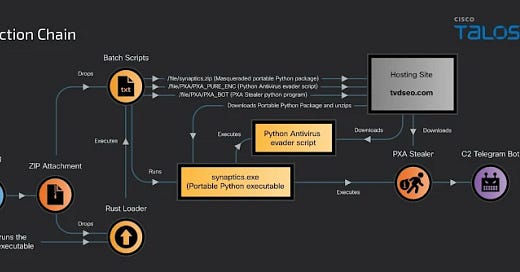[InfoSec MASHUP] 46/2024
Amazon Confirms Employee Data Stolen; Security Flaws in Popular Machine Learning Toolkits; US DoJ Sentencing Various Cybercriminals; Gov. Abuse Using Pegasus Spyware; Android Malware via Letter;
Welcome to the 16 new members from the last 30 days! This newsletter now has 1,593 subscribers.
Keep reading with a 7-day free trial
Subscribe to X’s InfoSec Newsletter to keep reading this post and get 7 days of free access to the full post archives.


